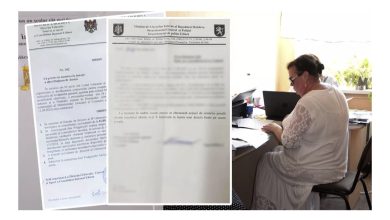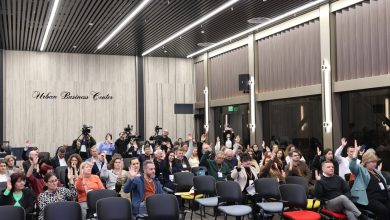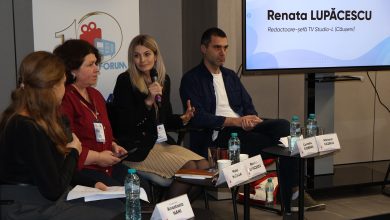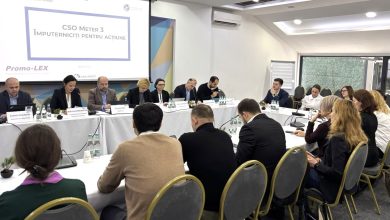Report: The Press in the Eastern Partnership Countries Will Remain Dependent on Donor Financing for the Foreseeable Future

A new report by the Baltic Center for Media Excellence (BCME) analyzes the drawbacks of independent media in the Eastern Partnership countries. The study includes observations and recommendations for the free media of the Republic of Moldova, Ukraine, Georgia, Armenia, Azerbaijan, and for the exiled free media from Belarus. The experts conclude that the entire existence of the independent media in these countries is also dependent on the support from the donors in the nearest future. According to the analysis, the media in the Eastern Partnership countries is severely affected by the Russian invasion in Ukraine, as well as by the lack of reporters and their burnout. Media polarization remains a major issue, and predominant consumption of information from social media whose algorithm often creates obstacles for the media is rather problematic.
Despite differences in the market size, history, and political and economic environment, independent media in the Eastern Partnership countries face serious and often similar challenges, according to the report. Economic hindrances to developing resilient media business remain severe. “Their mere survival, and therefore, their ability to provide impartial information and analysis of issues public interest to the audience will keep depending on donor support for the foreseeable future,” the BCME analysis notes. They are faced with different levels of political obstacles, some of which are dictated primarily by such external factors as the war in Ukraine, and the others by their own repressive governance, such as those in Azerbaijan or in Belarus.
Lack of Reporters and Lots of Theory
Several new tendencies define the state of the media in the region in the recent years. One of them refers to the staffing shortage. Reports from several states reveal a significant lack of qualified staff for editorial and commercial departments. Sales, marketing, and grants managers are particularly in demand. Some media outlets are also concerned by the international organizations’ impact on the labor market due to attracting the most talented media professionals. It should also be mentioned that the national media cannot compete with the international newsrooms in terms of remuneration.
Even though such a solution as hiring young specialists or students seems obvious, the same report demonstrates that most journalism schools teach theory rather than practical skills, with a few exceptions mentioned by the national media experts, including the School of Journalism from Moldova, the Caucasus School of Journalism and Media Management, Georgia, and the Kyiv-Mohyla School of Journalism in Ukraine. As to Azerbaijan, its university curriculum includes not only theory, but also loyalty to the regime.
Countering the Big Tech
Journalists, media managers, and media experts also unanimously mention the media’s struggle with the tech giants in the region. “In an environment where the public discourse keeps shifting online and to social media platforms, and many press outlets rely on social media for content distribution, the media is often hampered by the platforms’ practices. They include blocking or mislabeling legitimate news content, removing accounts, and platforms’ slow reactions to complaints or demands to restore certain information. It hinders audience assessment and prevents users from timely receiving information of public interest,” the authors remark.
Politics and Disinformation
Political issues still have a major impact on the media’s life and activity. The political environment in which independent media outlets work has deteriorated significantly in Azerbaijan and drastically in Belarus, where working as an independent journalist or even consuming independent media is no longer safe. In Georgia, policies keep becoming increasingly hostile: independent journalists face verbal and physical attacks, death threats, illegal prosecution, lawsuits, and limited access to information.
The European path which Moldova and Ukraine are currently following has determined the politicians to promote reforms. In Moldova, the regulatory and legal framework has improved accelerated by the change in the national policies after the 2021 parliamentary elections, the report states. However, such previous challenges as media polarization and concentration still persist. Similarly, in early 2023, Ukraine, in line with its intentions to join the European Union, adopted a new media law which largely aligns the neighboring state with the EU legislation and standards.
Nevertheless, disinformation remains a phenomenon all the countries mentioned in the report counter; the experts affirm that it particularly targets the Russian-speaking audience, especially in the Republic of Moldova and Ukraine. Fake news and propaganda get especially intense during the election campaigns and are aimed against pro-Western and pro-EU policies.
Money in the Media: A Painful Issue to Discuss
The BCME report reveals that the media outlets in the region, even those which were previously economically viable, become increasingly dependent on the donors. Many outlets have developed new sources of income other than advertising, though they do not yield enough money yet. Their list includes services offered to commercial customers, subscriptions, donations and membership, partnership projects, YouTube revenue, newsletters, and podcasts. Still, most media outlets in the region complain that the audience is not interested in paying for the content they can access for free.
As to grants and donors, the interviewed media managers almost unanimously affirm that their preferred type of financial support is basic financing rather than project-based funding. Not only are projects not always relevant to the target audience’s demands and interests, but some managers say that project funding contradicts donor requirements on media companies’ financial viability.
Besides, audience assessment still remains a well-known challenge. In spite of the fact that the BCME has been mentioning this issue since 2016, the donors have not provided any solutions yet, and this is especially important for audiovisual media. Very few are eager to pay for audience research unless the donors fund it.
The markets are often considered too limited to support a viable advertising sector to justify the emergence of commercial audience assessment companies, and those which are present are regarded as dubious or corrupt, as is the case in Moldova.
It should be specified that the BCME report is a summary of six country reports prepared by the national media experts on the basis of documentation, interviews with journalists, media managers, and experts, as well as with national NGOs. It is published in full here.




